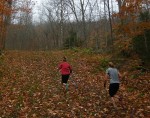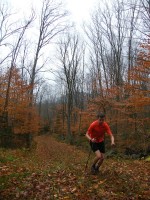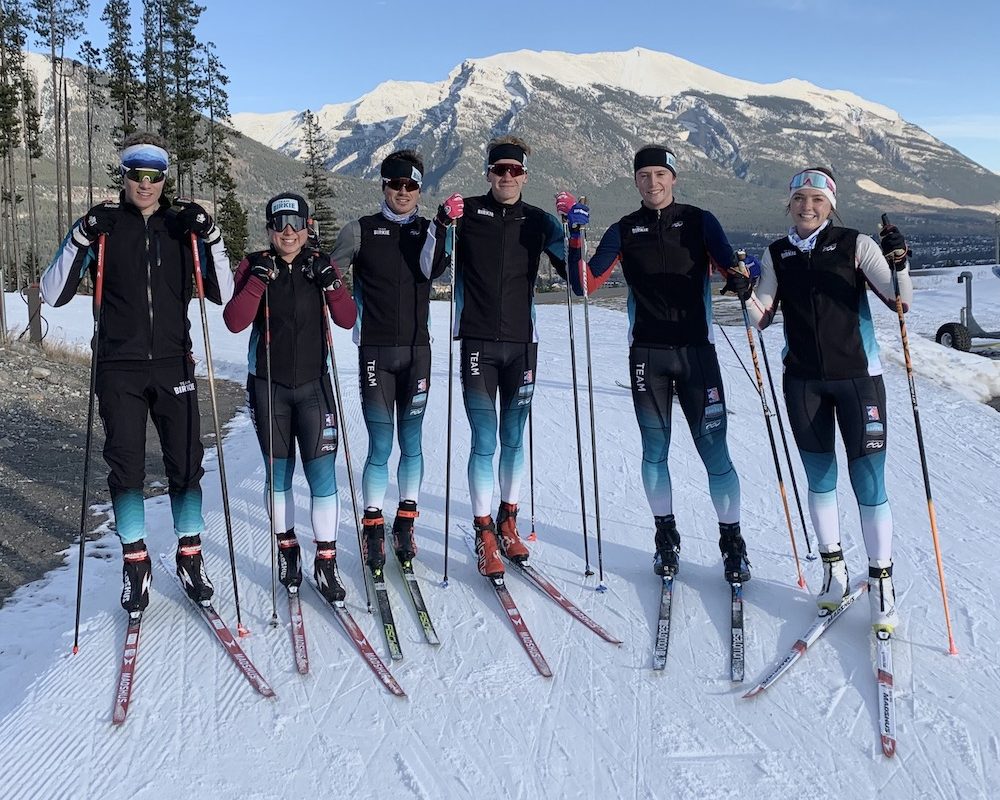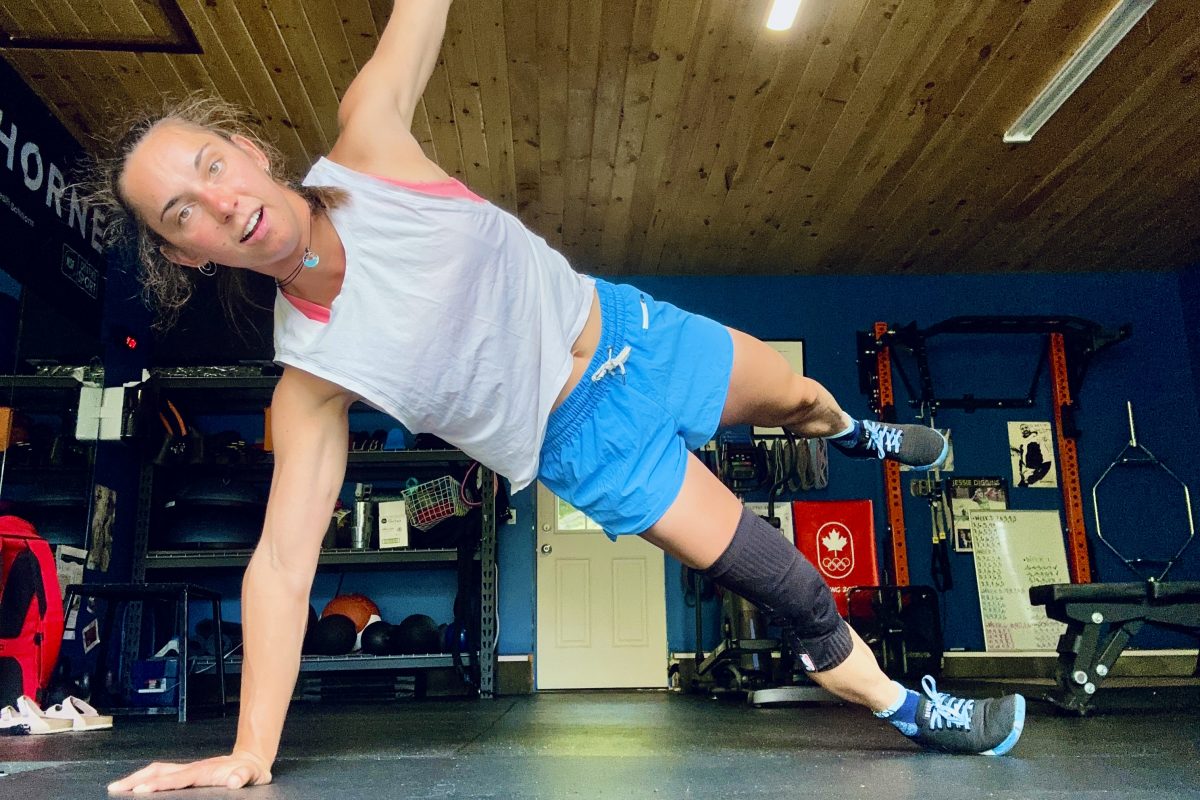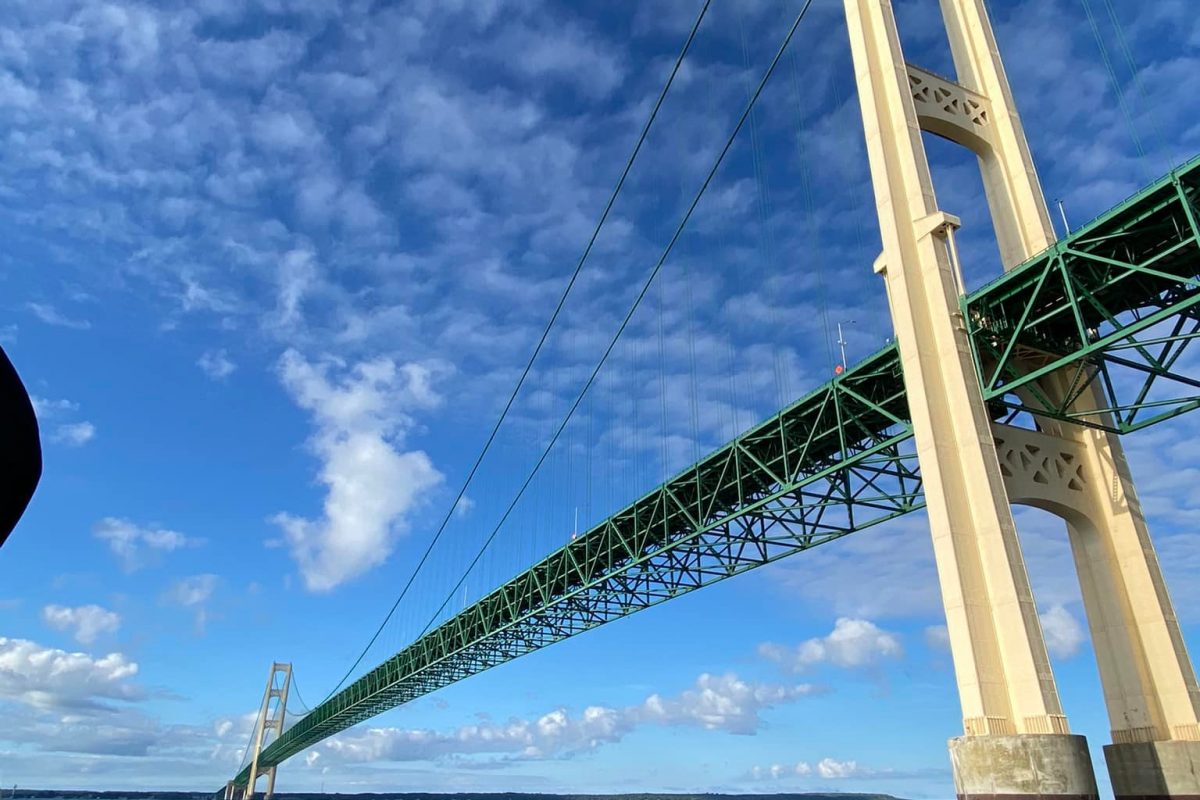
The following workout comes from Adam Terko, assistant coach of the St. Lawrence University nordic team and a regular eastern-collegiate contributor for FasterSkier. No snow? No problem. Terko and his team did this bounding workout in October. Submit your favorite workout or one from your team to info@fasterskier.com with the subject line: Wednesday Workout.
***
Just because a nordic trail doesn’t have snow on it doesn’t mean it can’t be used to maximize ski-training potential. A hard bounding workout with poles, done on the same terrain you race on, develops not only aerobic capacity and strong muscles but confidence and familiarity with a particular course. That was the goal with our Ladies’ 5 k bounding workout last weekend at Mt. Van Hoevenberg in Lake Placid, N.Y.
This session was based on a hard bounding workout our team often does on the trails of Higley Flow State Park, our main ski trail network close to campus. Recently we had a training weekend in nearby Lake Placid, where SLU will be hosting the 2015 NCAA Championships this spring.
We decided to do our “bounding loop” session on the Ladies’ 5 k course, so-named because it was the course used for that particular event in the 1980 Olympic Games. Consequently, it will also be used for the classic races at NCAAs. It is a notoriously difficult trail that features many large climbs strung together.
The Workout:
– Warm up with 30-35 minutes easy running, ending with 8-10 minutes of ski-walking and other dryland classic simulation drills
– Place “Start/Stop” cones on uphill sections to indicate when to bound hard
– Run 3 laps of the Ladies’ 5 k course, with bounding poles (or 6-10 laps around a 2 k loop)
– Between bounding sections (indicated by cones), jog at a reasonable pace
– Cool down with 20-25 minutes easy running
Both on-time and rest time are set distances, therefore as the workout goes on, the body will have a harder and harder time recovering between bounding sections. While most of the bounding sections will be on uphills, sometimes Coach Townsend and I will place the Start/Stop cones sadistically over the crests of hills or around corners that lead into steeper hills in order to encourage athletes to push themselves when they least want to, or when they least expect it.
Sometimes Coach Townsend and I will place the Start/Stop cones sadistically over the crests of hills or around corners … to encourage athletes to push themselves when they least want to, or when they least expect it.
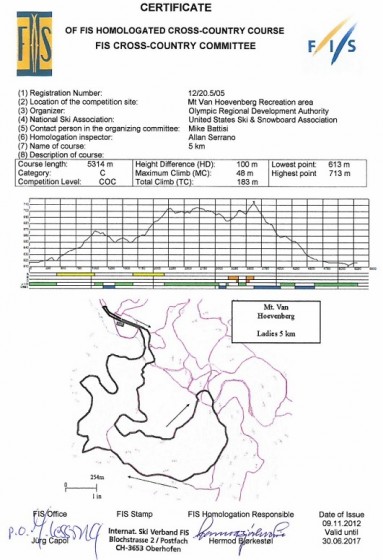
It is important to maintain good bounding form throughout the workout: this means efficient and powerful body position, explosiveness on the bounding initiation, and ‘float’ on the glide phase. I like to yell pseudo-aeronautic terms like “airborne!” and “flight time!” and “lift-off!” to the athletes while they bound to remind them to push hard enough to get air time.
During the later stages of the workout, keeping an eye on technique is even more important. Being a looped trail, if you are unable to maintain the correct form and intensity it is just a matter of cutting the workout a loop short (or multiple loops short, depending on your number of loops and the distance of each).
When done in the fall, along wet ground and through a rainy environment, preferably around the time of a sunset, this session has a very ‘Northern Scandinavian’ feel. It is distinctly old school in its materials and execution, and distinctly painful in its aftermath.
For those looking to re-create this workout, a set loop anywhere with multiple hills to climb and descend will work fine. A ski trail works best, but rolling fields or parks can be just as useful. Lap numbers vary based on the length of the loop and how much intensity you are looking to get in.
In the case of Ladies’ 5 k, a loop was anywhere from 24-30 minutes, with just over half that time being at intensity. At Higley Flow State Park, the loop we use for this workout is about 2 k long, and therefore most end up doing anywhere from 6-10 laps.

